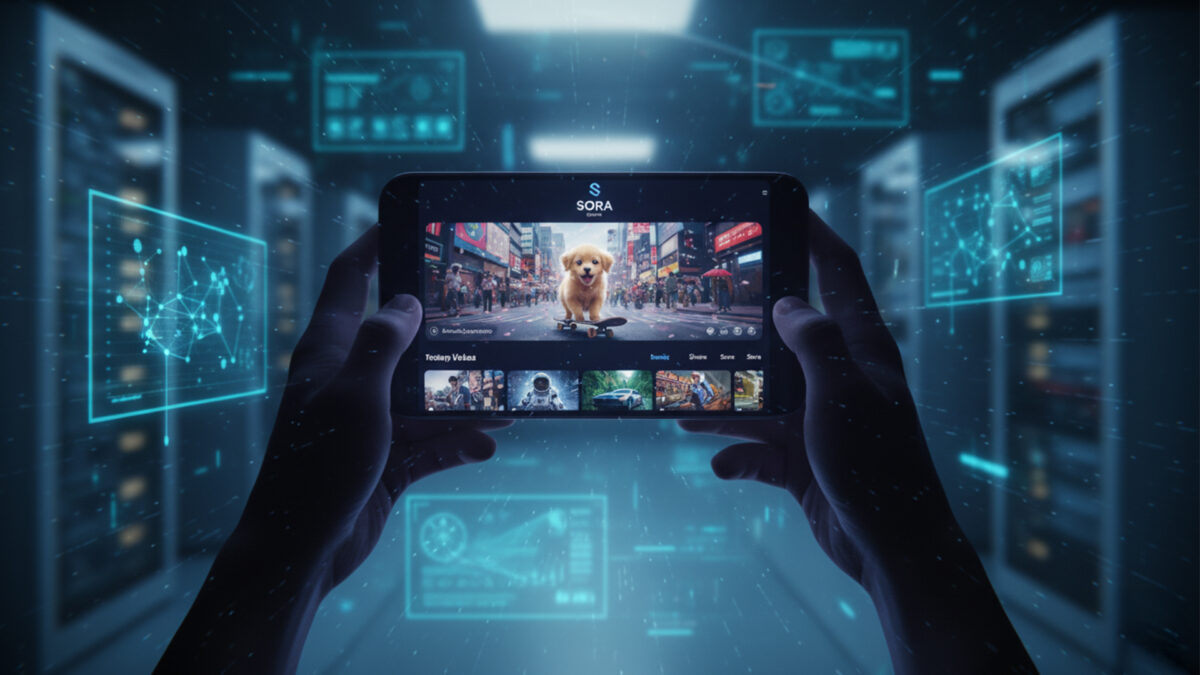OpenAI described Sora’s launch as a potential “ChatGPT moment for video generation.”
OpenAI has unveiled a new video app, Sora, alongside its upgraded video model, Sora 2, marking a direct push into the short-form video space dominated by TikTok and Instagram Reels.
The app is currently invite-only and available on iOS in the U.S. and Canada. It enables users to generate, share, and remix AI-driven short videos featuring themselves and others.
Sora 2 brings major improvements over the first version, including better alignment with real-world physics. OpenAI noted that earlier video models sometimes produced unrealistic results—such as a ball teleporting after a missed shot—whereas Sora 2 ensures more natural outcomes like realistic bounces.
The new model also supports synchronized audio, while the “Cameo” feature allows users to insert themselves into videos by uploading a one-time recording for identity verification.
The app is designed for AI-generated content only, with a “Remix” feature allowing users to interact with trends, adopt popular formats, and co-create content. OpenAI described Sora’s launch as a potential “ChatGPT moment for video generation.”
Copyright concerns remain central. By default, Sora may include content from copyrighted materials unless rights holders opt out, and at least one major studio, Disney, has already chosen to exclude its content. The app also prohibits generating likenesses of public figures unless they have opted in.
OpenAI has introduced safeguards to prevent misuse. Users whose likeness is used can revoke access or remove content, and the app bans the creation of explicit, violent, or extreme videos.
Industry analysts see Sora as a significant step for OpenAI into social media, aiming to transform how video content is created and shared. However, some experts caution that a surge of AI-generated content could overwhelm authentic posts and create trust issues among users.
Looking ahead, OpenAI plans to expand Sora globally and release an API to allow third-party developers to integrate Sora 2 into other video tools. An Android version is also in development.
With Sora, OpenAI aims to redefine short-form video by centering AI-generated content rather than relying solely on user recordings—a move that could reshape the digital content landscape if widely adopted.
Also Read: Apple, Google, and Meta Face Legal Challenges Over Gambling Apps
